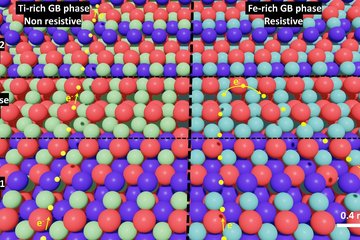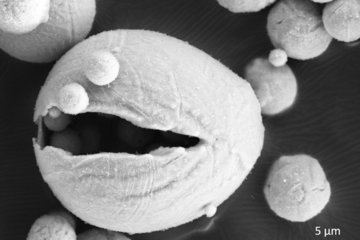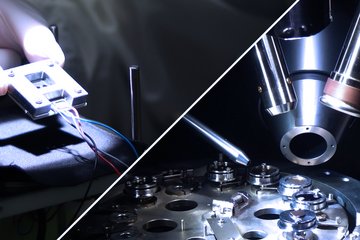All genres
181.
Talk
Atomic forces at finite magnetic temperatures: Phonons in paramagnetic iron. DPG Frühjahrstagung 2012, Berlin, Germany (2012)
182.
Talk
Fully ab initio determination of anharmonic contributions by efficient sampling strategies. DPG Frühjahrstagung 2012, Berlin, Germany (2012)
183.
Talk
Fully ab initio determination of anharmonic contributions by efficient sampling strategies. TMS 2012, Orlando, FL, USA (2012)
184.
Talk
Ab Initio Thermodynamics of the fcc-bcc Transition in Ca Including All Relevant FiniteTemperature Excitation Mechanisms. TMS 2012, Orlando, FL, USA (2012)
185.
Talk
Ab Initio Temperature-Dependent Lattice Dynamics for BCC Uranium. TMS 2012, Orlando, FL, USA (2012)
186.
Talk
Advancing ab initio to finite temperatures for applications in materials design. DPG Frühjahrstagung 2012, Berlin, Germany (2012)
187.
Talk
Ab initio prediction of materials properties up to the melting point. Condensed Matter and Materials Division seminar series, Lawrence Livermore National Lab, Livermore, CA, USA (2012)
188.
Talk
Atomic forces at finite magnetic temperatures: Phonons in paramagnetic iron. 1st Austrian/German Workshop on Computational Materials Design, Kramsach, Austria (2012)
189.
Talk
Ab initio prediction of materials properties up to the melting point. Seminar: "Ab initio Description of Iron and Steel: Thermodynamics and Kinetics", Tegernsee, Germany (2012)
190.
Talk
Ab initio up to the melting point: Integrated approach to derive accurate thermodynamic data for Al alloys. European Aluminium Association, European Aluminium Technology Platform, Working Group 5: Predictive Modelling, 5th workshop: ab initio modelling, Aachen, Germany (2011)
191.
Talk
Ab initio up to the melting point: Anharmonicity in copper. CM-Workshop, Attendorn, Germany (2011)
192.
Talk
Ab initio determination of point defects and derived diffusion properties in metals. 3rd Sino-German Symposium, Xi’an, Shaanxi, China (2011)
193.
Talk
Computational Phase Studies: Deriving free energies and phase transitions from first principles. CECAM workshop 442: Materials Informatics: Tools for Design and Discovery, Lausanne, Switzerland (2011)
194.
Talk
Fully Ab Initio Description of Point Defect Formation and Properties at Extreme Temperatures. MRS 2011 Spring Meeting, San Francisco, CA, USA (2011)
195.
Talk
Ab initio prediction of thermodynamic data for selected phases of the Al–Mg–Si–Cu system. DPG conference, Dresden, Germany (2011)
196.
Talk
First principles concepts to calculate thermodynamic properties of magnetic materials. ICAMS Advanced Discussions, Bochum, Germany (2011)
197.
Talk
Phase stabilities of metals at finite temperatures: Ab initio meets CALPHAD. 468. WE-Heraeus-Seminar, Ab intio Description of Iron and Steel (ADIS2010): Mechanical Properties, Ringberg, Germany (2010)
198.
Talk
Integrated approach to derive thermodynamic data for pure Al and Al alloys up to the melting point. Psi-k Conference 2010, Berlin, Germany (2010)
199.
Talk
Ab initio prediction of thermodynamic data for selected phases of the Al-Mg-Si-Cu system. CECAM Summer School on Computational Materials Sciences, San Sebastian, Spain (2010)
200.
Talk
Thermodynamics - Master class. Summer School: Computational Materials Science, San Sebastian, Spain (2010)











